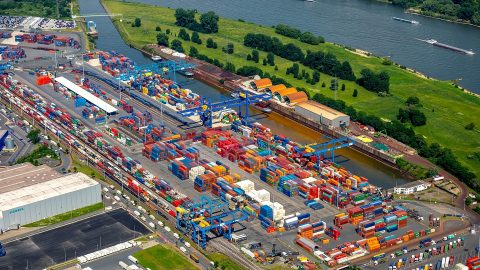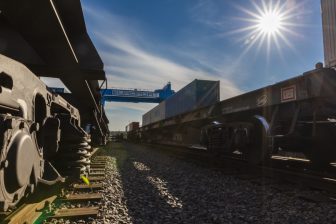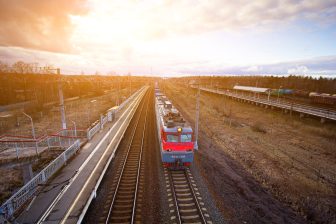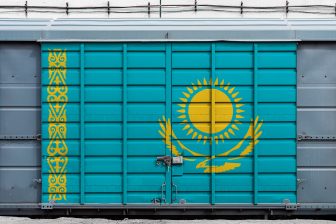
Europe poorly coordinated on New Silk Road
Europe is not coordinated enough to deal with the surging volumes of freight on the New Silk Road. That is the concern of the Group of European TransEurasia Operators and Forwarders (GETO). The group will work together more closely with the Coordination Council for Trans-Siberian Transportation (CCTT) in order to improve the situation.
This was one of the conclusions drawn at the 28th plenary session of the CCTT, an international non-commercial association of which GETO is one of the members. It is also joined by RZD (Russian Railways), Deutsche Bahn and the Korean International Freight Forwarders Association (KIFFA), making it the ideal base for cooperation among New Silk Road stakeholders.
Poorly coordinated Europe
All stakeholders on the New Silk Road urgently need to coordinate their actions more closely due to rapidly growing flows of goods and trade along this transport project, the CCTT stated. “While China has a standard set of rules for transport planning through goods platforms, in the European Union flows of goods encounter a poorly coordinated logistics and infrastructure system.”
CCTT and GETO will work together with industry and authorities in the future to develop and put forward proposals for coordinating both innovative technologies and existing IT solutions. “We have to develop a network of public authorities, industry as well as existing infrastructure – terminals and rail networks – to solve the main problem of bottlenecks in the coordination of the last mile to the consignee”, said Harm Sievers, GETO’s President.
Urgently needed
CCTT’s Secretary General, Gennady Bessonow, said that GETO’s partnership initiative is urgently needed and that there will be outstanding opportunities to improve this cooperation in the future: “All partners involved along the Silk Road are indicating to us that they are willing to improve existing processes and to connect through us. There are no concerns at all about this partnership – we are being urged to put forward proposals by policymakers, authorities and industry in all countries involved.”
GETO and CCTT will work together closely on developing infrastructure related to customs procedures, digitalisation and the harmonisation of international law along European-Eurasian routes. The main goal is to continue raising awareness among the governments of affected countries and to continue increasing the movement of goods at almost equal workloads in either direction. “This will allow us to tap into additional sectors and groups of commodities and to create lasting jobs along the 12,000 km corridor, which goes through five countries, as a result of these services,” Sievers said.
European Silk Road Summit
Do you want to know more about the New Silk Road and its latest developments? On 26 and 27 November the European Silk Road Summit takes place in Venlo, the Netherlands. At this two-day international event more than 35 speakers and around 250 delegates will share their experiences, expertise and latest news.
Registration for the event is now open. The programme and speakers can be found on the website.





